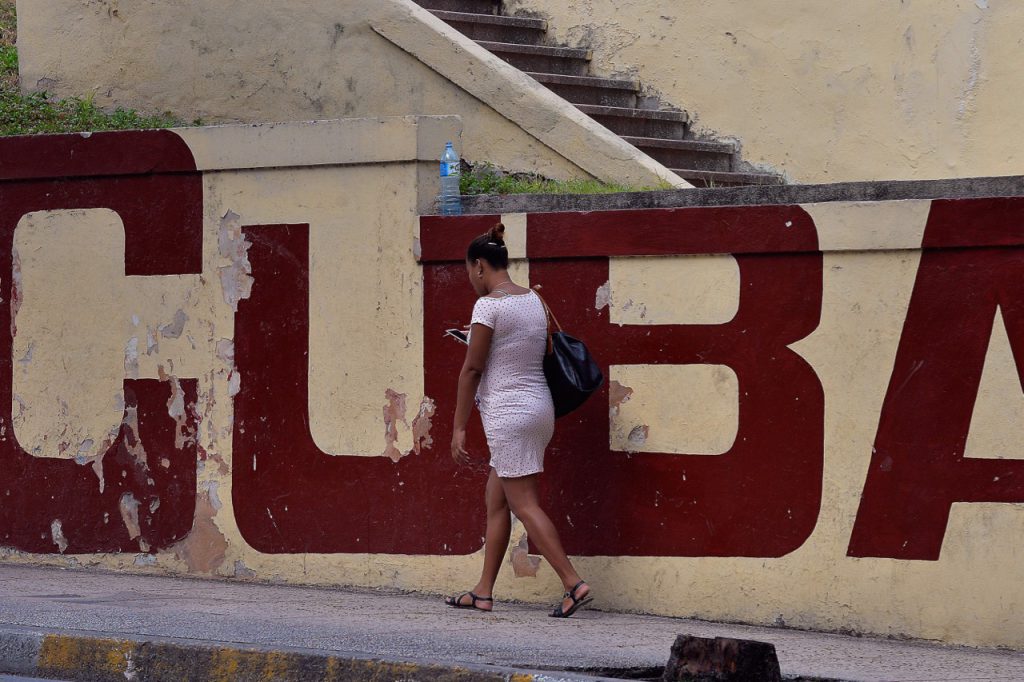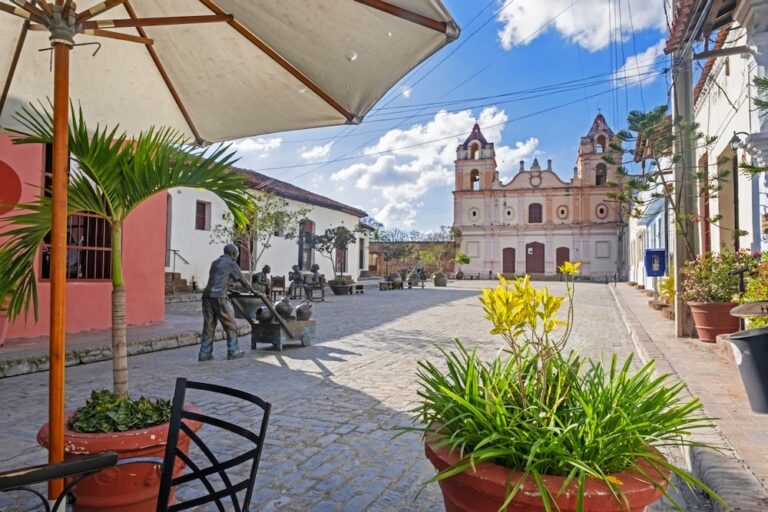Journalists Osmel Ramírez, Niober García Fournier and Roberto de Jesús Quiñones continue to be strictly forbidden to leave the country or even, at times, to leave the province in which they live. They have been arrested or summoned on several occasions, have received threats against their families or have been threatened with imprisonment.
This statement was originally published on en.sipiapa.org on 29 March 2019.
Report to the IAPA’s Midyear Meeting, March 2019
A constitution to safeguard gagging and maintain freedom of speech and the practice of the independent press as criminal conduct, has been the main development in the last six months. After a multitude of “debates” monitored by the Ministry of the Interior and led by the Communist Party, and a campaign and vote during which the regime repressed the voices of political and human rights groups opposed to the Yes campaign for the Constitution, the new Magna Carta was approved on February 24. It does not regress in terms of freedom of speech or the press, but maintains most of the limitations established by the previous legal text.
The most serious cases during this period were focused on the eastern region of the country. Journalists Osmel Ramírez, Niober García Fournier and Roberto de Jesús Quiñones continue to be strictly forbidden to leave the country or even, at times, to leave the province in which they live. They have been arrested or summoned on several occasions, have received threats against their families or have been threatened with imprisonment.
Journalists who produce community bulletins such as Páginas Villareñas and Panorama Pinareño were arrested while distributing copies. Their work equipment and transport were confiscated, and they were threatened with arrest.
Henry Constantín, regional vice-president for Cuba of the Press Freedom Commission, was arrested in public and threatened with prison if he continued working. The agents brought with them the printed report that Constantín presented at the IAPA assembly in Salta. He was forbidden to travel outside the country until March 10 – when he was a week away from completing a two-year ban period. While Constantín was out of the country, a prosecutor, a criminal investigator, a police officer, and three other Interior Ministry agents approached his parents at different times and places to inform them that their son “should not leave the country because he is under investigation” for an unspecified crime, and also stating that he will be imprisoned upon his return to the country.
Article 149 of the Penal Code, “usurpation of legal capacities”, remains the one most often used to threaten independent journalists. So far, in the last two years, no colleague has been convicted.
The designer of the magazine Convivencia, Rosalia Viñas, was sentenced to house arrest, and Karina Gálvez, economist at the Convivencia Centre and columnist for the same magazine, was forbidden to leave the country. Other collaborators of this magazine are summoned for interrogation every time they return from abroad.
State Security is vicious against women in the independent press. They are often arrested, interrogated and threatened by men who warn them that their children could be affected.
The Constitution approved on February 24 in a referendum without democratic guarantees and plagued with irregularities recognizes freedom of expression and freedom of the press, but subordinates it to current legislation or to laws and reforms to be discussed in the same repressive environment in which the previous legislation has evolved. It reiterates that the “fundamental press media” will continue to be state property, and establishes a political order in which all public powers will remain subordinate to the Communist Party of Cuba (PCC), keeping the government, the courts, the parliament and the economic apparatus subject to the directives of the person who occupies the post of first secretary of the PCC.
The Law of Patriotic Symbols – which regulates the use of symbols and prohibits their use in places or situations considered inadequate by the authorities – is under debate. This would create problems for artists, photographers and communicators who use elements such as the Cuban flag on their products.
Prior to the approval of the Constitution, Decree 349 was approved – which penalizes any citizen who performs artistic activities without state approval and punishes those who provide the physical space. Decree 349 has been actively opposed by part of the artistic community, especially in Havana, and a singer, Maykell Osorbo, is currently in prison for having expressed his opposition to this regulation at a concert.
The Law of Associations and the regulations governing self-employment and economic activity in the country continue to ignore or prohibit any attempt at legalization and financial sustainability of the media. Citizens who run private businesses avoid placing advertisements with independent media, for fear of being punished by state inspectors, under the control of the Communist Party and the Ministry of the Interior.
The materials needed by print media (paper, printers, ink or powder), do not exist in the regular market and due to the restrictions the state imposes on imports, have high prices in the irregular market. And of course, the possibilities of having sophisticated printing systems for abundant print-runs, as well as of selling or distributing those copies, do not exist. These needs of the press media are considered crimes under the current Penal Code, which together with Law 88 continue to be the two most dangerous provisions for the exercise of freedom of expression, information and the press.
An important positive element in this period (practically the only one of national scope) has been the activation of the Internet service by data, for mobile phones. Although the starting price of this service is huge (from 7 USD per 600 Mb, in a country whose official average salary is around 35 USD), and the quality of the 3G service has enormous challenges, the connectivity of Cubans on the island has increased, as well as their participation in debates and access to news, especially through Facebook and WhatsApp.
At the same time, the number of journalism-related websites that have been blocked has increased, with Tremenda Nota joining the list in the days prior to the constitutional referendum. Cubanet, Diario de Cuba, 14ymedio, Martinoticias, El Estornudo, Gatopardo, the IAPA, along with another thirty websites, continue to be blocked – although some have been temporarily unblocked.
There have also been reports of an increase in the hacking of accounts on Facebook and Twitter – always belonging to activists from political organizations persecuted by the authorities. The hackings are often followed by the use of the hacked accounts in defamation campaigns against dissidents.
The education system remains under the absolute control of the regime, which maintains very restrictive rules against freedom of expression at all levels of education – sometimes using teachers and education officials to harass the children of independent journalists. In addition, the authorities persecute and punish any expression of dissent within universities, the most extreme case being the recent interrogation by State Security agents, and subsequent expulsion from the university of Jorge Enrique Cruz Batista – an architecture student at the University of Camagüey, accused of painting a poster against Díaz-Canel inside the university.
The Ministry of the Interior continues to have control over all state institutions in the country, which it uses for the continuous monitoring, surveillance and repression of freedom of expression, and to limit press freedom. But its main methods during this period are the ones that follow – with a non-total list of victims accompanying each repressive modality:
. Those who have been arrested: Oscar Padilla, David Himbert (a Canadian journalist who tried to photograph the facade of the Damas de Blanco headquarters), Adrián Quesada, Dunia Pérez, Felipe Solís, Yudeisi García, Zaray Fernández, Vladimir Turró, Roberto de Jesús Quiñones, Oscar Padilla, Jorge Enrique Rodríguez, Henry Constantín, Yoandry Limonta, Rolando Rodríguez Lobaina, Julián Marrero and Dixan Gaínza.
. Iris Mariño’s husband, Henry Constantín’s father and Ana León’s mother have been harassed directly.
. State Security or PNR agents have interrogated Oscar Padilla, David Himbert, Adrián Quesada, Sandra Haces, Yoe Suárez, Roberto de Jesús Quiñones, Julián Marrero, Ana León and Henry Constantín.
. During the arrests they have searched, destroyed or confiscated work material and personal property belonging to David Himbert, Adrián Quesada, Dunia Pérez, Felipe Solís, Henry Constantin, Yoandry Limonta and Dixan Gaínza.
. Newspaper printouts from the bulletins Páginas Villareñas, Panorama Pinareño, La Hora de Cuba magazine and Amanecer Habanero have been confiscated.
. Threats of imprisonment, and accusations of usurpation of legal capacities and enemy propaganda, as well as warning notices, have been directed against Ileana Hernández, Roberto Rodríguez, Niober García Fournier, Adrián Quesada, Dunia Pérez, Felipe Solís, Vladimir Turró, Roberto de Jesús Quiñones, Henry Constantín, Augusto César San Martín and Ana León.
. Rafael Almanza, a contributor to La Hora de Cuba and other digital media – and winner of the National Independent Literature Prize, has received at least four death threats through anonymous phone calls.
. Sandra Haces was a victim of verbal violence by policemen. Pablo Morales was physically attacked.
. Osmel Ramírez, Niober García, Augusto César San Martín, Yoel Alberto Romero, Ana León and Manuel Morejón have been summoned to the Ministry of the Interior offices.
. Ana León, Ileana Hernández, Julio Aleaga, Amarilis Cortina, Rosalia Viñas, Karina Gálvez, José Antonio Fornaris, Niober García, Víctor Manuel Domínguez, Osmel Ramírez, Roberto de Jesús Quiñones and Abraham Jiménez are currently forbidden to travel outside Cuba.
. Forbidden from leaving their home, or the province, during important events or because of sentencing: Alberto Méndez, Roberto de Jesús Quiñones, Jorge Enrique Rodríguez, Henry Constantín, Rolando Rodríguez Lobaina, Lázaro Yuri Valle and Eralidis Frómeta.
. Inalkis Rodriguez, Yoe Suarez and Henry Constantin have undergone thorough and unwarranted baggage checks at Cuban airports.
. Iris Mariño and Henry Constantín have been followed on the street by civilians behaving like agents from the Ministry of the Interior, and she has been filmed. In addition, Iris lost a lawsuit filed in order to recover her job as a teacher after verifying that State Security knew about the penalty beforehand – she was later expelled from a state artistic organization that she belonged to.
. A Repudiation Act is also reported: Yoani Sanchez received one while covering the vote count at an electoral college on February 24.
Meanwhile, foreign correspondents accredited in Cuba work under the permanent threat of losing their credentials – which are controlled by the regime, and of automatically losing their residence permit, which depends on whether they maintain their jobs on the island. Only those foreign media that have Cuban correspondents who are used to work in conditions of illegality can guarantee realistic coverage of the country’s events – although these journalists undoubtedly run risks (such as journalist Jorque Enrique Rodríguez – arrested in mid-March while traveling on Cuban highways).
The problems of the press in Cuba remain critical, and the methods used by the authorities to repress the press are identical to those used to repress it in Nicaragua and Venezuela, indicating that more than a local issue, it is a regional problem originating in a single entity (the Cuban state) specialized in combating press freedom.



